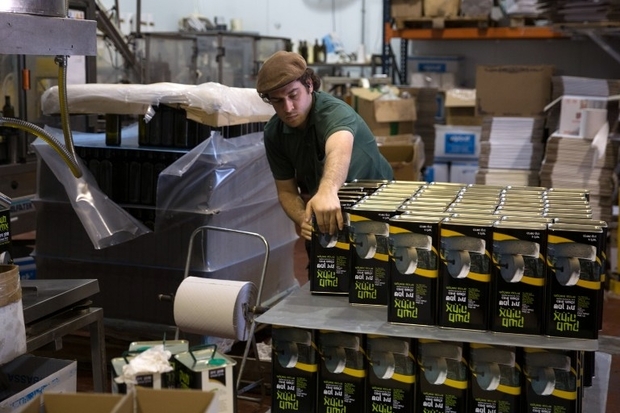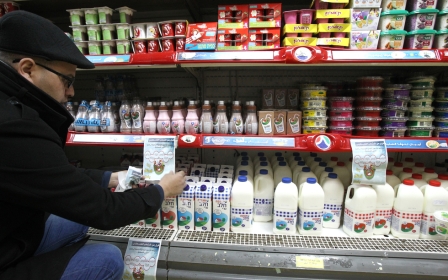Israel says France is 'encouraging radical elements' with settlement labels

Israel has reacted with fury after France said importers and retailers must label products from settlements in the occupied territories, saying the French government is "encouraging radical elements" and effectively boycotting Israel.
The new regulations, issued by the French government, say that if any product comes from a settlement, French vendors must make this clear on the packaging.
The regulations explained that in accordance with the November 2015 European Commission guidelines, the West Bank, East Jerusalem and the Golan Heights are occupied territories and not considered part of Israel.
This is thought to be the first move of its kind by an EU member state following the issuing of the guidelines last year.
The EU does not recognize Israeli sovereignty beyond the 1967 lines, irrespective of the status of those territories in Israeli law.
The regulations highlighted that the new rules were to ensure that consumers are not deceived into thinking that they are buying Palestinian goods from the West Bank or East Jerusalem.
It is unclear why the French government has published these rules only now, a year after the European Commission published its guidelines.
Israel reacted angrily on Friday, with the foreign ministry saying it "regrets that France, which actually has a law against boycotts, is advancing measures that can be interpreted as encouraging radical elements and the movement to boycott Israel."
It accused France of a "double standard" by focusing on Israel and "ignoring the other 200 territorial disputes around the world."
According to Israeli daily Haaretz, many European countries have refrained from issuing specific regulations for their retailers and importers, but instead have made do with the general European Commission guidelines.
While the European Commission has stated that enforcement of the regulations is the responsibility of the authorities in each of the 28 EU countries, it retains the possibility of initiating procedures to examine violations if member countries do not adhere to the rules themselves.
It is up to member countries to determine what punishments to impose on those who do not carry out the instructions, but the Commission’s guidelines obligate the countries to impose sanctions on anyone who violates them.
In response to the EU’s decision, Israel summoned its EU envoy, Daid Walzer, in November 2015. Walzer told journalists at the time that the EU’s decision is “extremely disappointing” and “unacceptable”.
New MEE newsletter: Jerusalem Dispatch
Sign up to get the latest insights and analysis on Israel-Palestine, alongside Turkey Unpacked and other MEE newsletters
Middle East Eye delivers independent and unrivalled coverage and analysis of the Middle East, North Africa and beyond. To learn more about republishing this content and the associated fees, please fill out this form. More about MEE can be found here.




